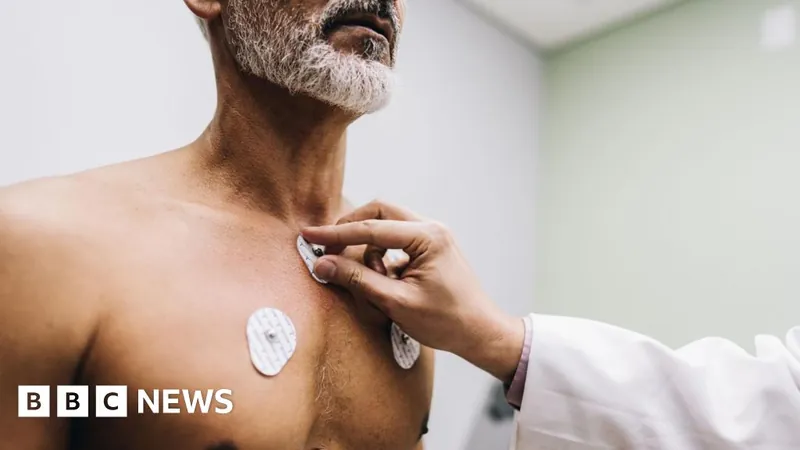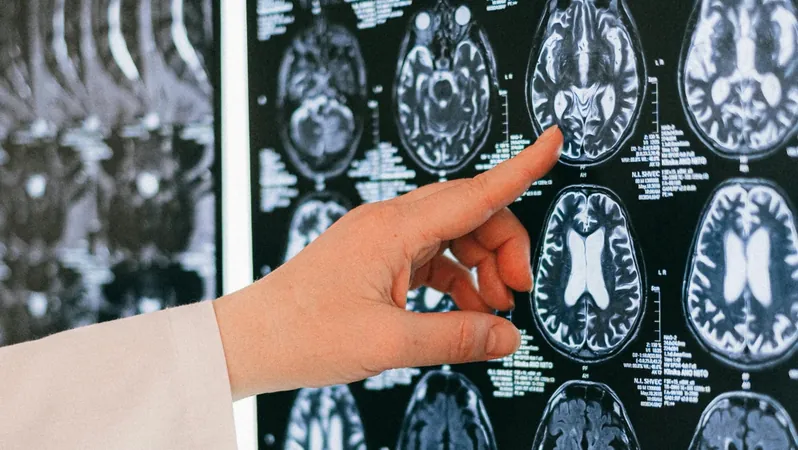
Breakthrough in Diabetes Prediction: AI Set to Revolutionize Early Detection of Type 2 Diabetes Risk
2024-12-24
Author: Jacob
Breakthrough in Diabetes Prediction: AI Set to Revolutionize Early Detection of Type 2 Diabetes Risk
In a groundbreaking initiative, two NHS hospital trusts in London are utilizing cutting-edge AI technology to potentially predict individuals at risk of developing type 2 diabetes — up to a staggering ten years before the onset of the disease. This pioneering project includes Imperial College London and Chelsea and Westminster Hospital NHS Foundation Trust, both of which have implemented an innovative AI system named Aire-DM.
Aire-DM is designed to analyze patients' ECG (electrocardiogram) readings, searching for subtle cues that may indicate an elevated risk of diabetes. According to lead researcher Dr. Fu Siong Ng, prior studies suggest that this system can accurately identify diabetic risk in approximately 70% of cases. By incorporating additional patient data—such as age, sex, existing conditions like high blood pressure, and weight—this predictive capability can be significantly enhanced.
Dr. Ng explains that the AI detects diverse and nuanced changes within the ECG data that would be nearly impossible for even the most trained medical professionals to recognize visually. “It’s not just about one segment of the ECG. It involves analyzing a complex combination of subtle indicators,” he states.
As part of the upcoming clinical trials scheduled for 2025, as many as 1,000 patients from both hospitals will undergo ECG readings analyzed by Aire-DM. Although the implementation of this AI-based screening is not imminent, there are hopes for wider NHS adoption in the next five years.
The British Heart Foundation is backing this essential research, emphasizing that early identification of diabetes risk could be life-saving. Unmanaged type 2 diabetes significantly increases the likelihood of severe health issues, such as heart attacks and strokes—conditions that can be prevented with proper medical intervention.
Professor Bryan Williams, Chief Scientific and Medical Officer at the British Heart Foundation, hailed this research as “exciting.” He noted how powerful AI could unlock insights from ECG analyses that remain hidden within conventional health records, revolutionizing how we predict future diabetes risk long before symptoms manifest.
Dr. Faye Riley from Diabetes UK added, “Type 2 diabetes frequently goes undetected, sometimes for years. With 1.2 million individuals in England unaware they have this condition, it is vital to recognize those at risk early. AI-powered assessments hold promise in identifying those predisposed to diabetes, enabling timely access to preventive measures and resources to avoid severe complications like heart failure and vision impairment.”
Understanding Type 2 Diabetes
Understanding what type 2 diabetes involves is critical. It’s a widespread condition characterized by elevated blood glucose levels, occurring when the body fails to produce sufficient insulin or effectively use this crucial hormone. Excess weight is often a contributing factor, as fat accumulation around the pancreas—the organ responsible for insulin production—can impair its function.
This innovative use of AI not only encapsulates the essence of technological advancement in healthcare but also sheds light on the pressing need for proactive measures against the diabetes epidemic that is increasingly gripping populations worldwide. Will this technological marvel change the landscape of diabetes diagnosis and prevention? Only time will tell!









 Brasil (PT)
Brasil (PT)
 Canada (EN)
Canada (EN)
 Chile (ES)
Chile (ES)
 España (ES)
España (ES)
 France (FR)
France (FR)
 Hong Kong (EN)
Hong Kong (EN)
 Italia (IT)
Italia (IT)
 日本 (JA)
日本 (JA)
 Magyarország (HU)
Magyarország (HU)
 Norge (NO)
Norge (NO)
 Polska (PL)
Polska (PL)
 Schweiz (DE)
Schweiz (DE)
 Singapore (EN)
Singapore (EN)
 Sverige (SV)
Sverige (SV)
 Suomi (FI)
Suomi (FI)
 Türkiye (TR)
Türkiye (TR)